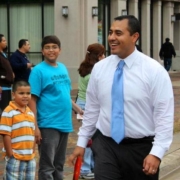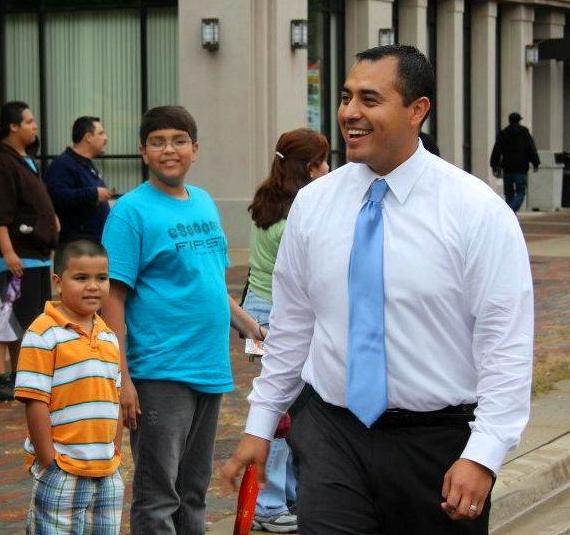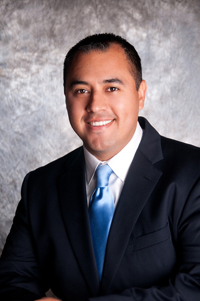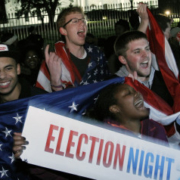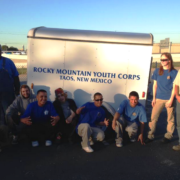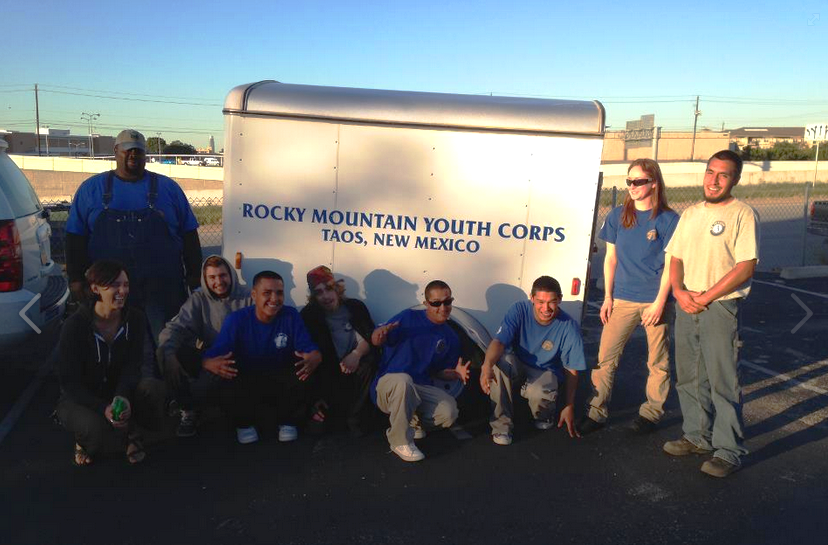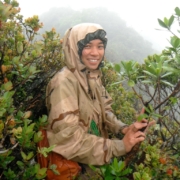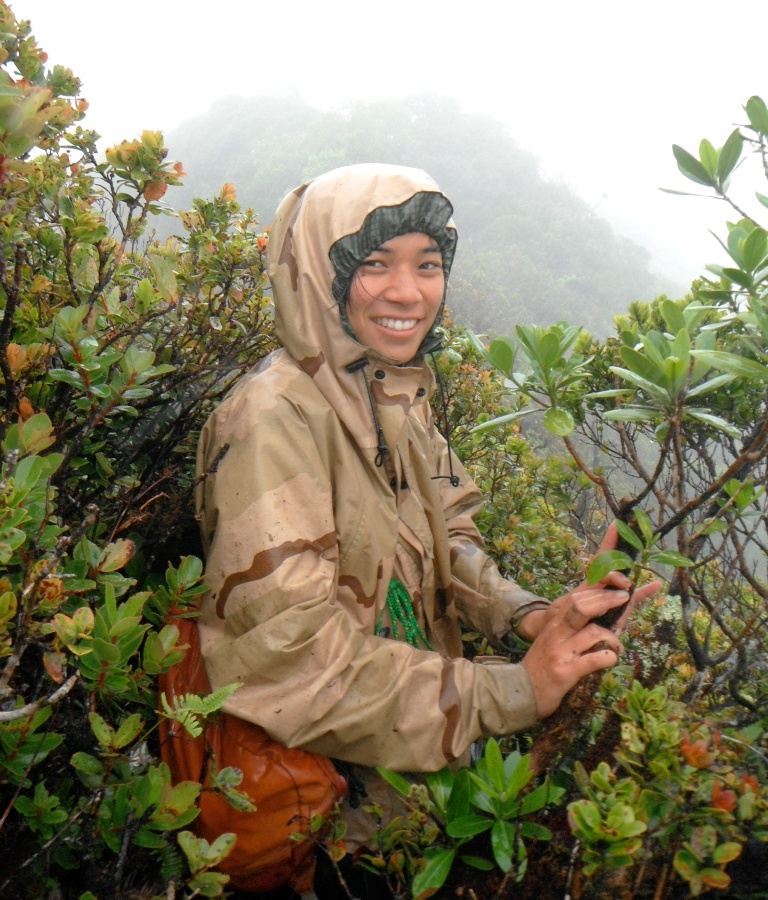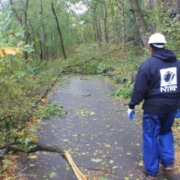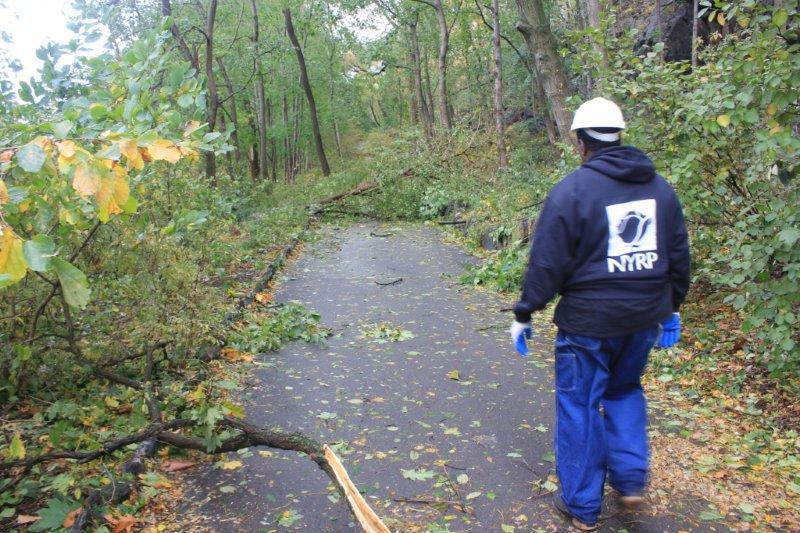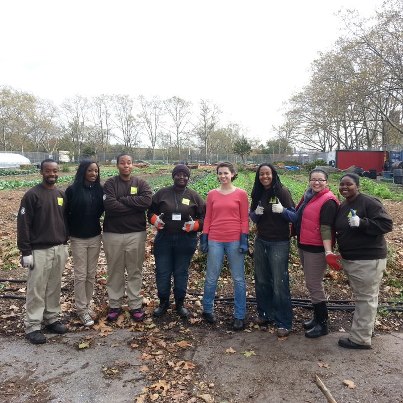Where are they now? – Catching up 2009 Corpsmember of the Year,
Kenny Mai
Kenneth Mai, a former member of the Los Angeles Conservation Corps, won Corpsmember of the Year in 2009 for his commitment to service and self change. Read below to find out what he’s been up to since accepting his award, or find out more about Kenny and his Corps experience by reading his bio from our 2009 national conference.

Kenny Mai admits that he was once headed down a bad path. He was affiliated with a gang when he was a teenager and experimented with drugs and alcohol. He faced homelessness and an unstable family life. Kenny, who moved to Los Angeles from Belize when he was 13, also dropped out of high school due to his frustrations as a non-native English speaker. Fortunately, he was able to turn things around with the help of the Los Angeles Conservation Corps (LACC).
Kenny joined LACC in 2007 after hearing about the program from a friend. By this point Kenny had already participated in Job Corps and earned his GED. However, he still saw room for self-improvement and needed to break ties with his gang background. LACC’s program, which offers youth the chance to go back to school while also gaining work experience and earning a little money, seemed too good to pass up. While he was with LACC, Kenny became competent in carpentry, roofing, plumbing, irrigation and drywall installation. In addition to job skills, Kenny also learned important life skills.
“They taught me really everything that I know now. They’re the ones that took me out of the streets. It was one of the best experiences that I’ve ever had,” said Kenny. “The most important thing I learned was to be a leader and I got work skills. They taught me how to be on time. A lot of the training they gave me I’m still using today.”
These days, Kenny works for the Koreatown Youth and Community Center. With KYCC, Kenny has planted trees, removed graffiti from public places, and participated in community cleanups and landscaping projects. Kenny is also currently contracted through KYCC with Southern California Edison’s Energy Conservation Program. Kenny works in an Edison warehouse driving forklifts and managing inventory, but he mainly helps organize crews that go out and provide free retrofitting services to Edison customers.
Kenny left the Los Angeles Conservation Corps in 2009 and went straight to KYCC, but he says that his experience with LACC still impacts his day-to-day life.
“It’s funny because me and my coworker always talk about this. There are little things that the Conservation Corps changes about you that make a big difference,” said Kenny. “Now I can’t litter! I always find a trashcan because I’ve done the work of cleaning up trash. I’ve gone from not worrying about it to seeing how littering is a real problem and I’m adding to it. Now I’m more conservative. It used to be ‘whatever,’ but now I’m thinking ‘save the planet.’ Now I’ve got to worry about my kids.”

Looking back at his time with LACC, Kenny is most proud of a tree planting project he participated in near his home. The Corps’ goal was to plant 500 trees in a single day, but they ended up planting 600. Kenny says the trees are still standing and it’s a great feeling to walk past them.
Kenny is also proud of his time as president of the Conservation Corps’ Leadership Council. He says his presidency was an important learning experience that taught him leadership skills he uses today. During his presidency, Kenny managed to change how the council is run and organized.
“When I started, they were paying the Corpsmembers to be in the council – giving them a stipend. But I said, I don’t think the leaders should be getting paid to be leaders. I didn’t think they should get the stipend – if they want to be in the council, they should join out of their own will,” said Kenny. “Before that, there were like six people in the council all getting the stipend, and when I came in there was like 18 people in the council just a month later and they weren’t getting paid. That was really cool. They inspired me and I inspired them.”
Through his position on the Leadership Council, Kenny became an important recruiter for LACC. He reached out to youth who were dealing with many of the same issues he had experienced before joining the Corps.
“I got to get a lot of Corpsmembers off the street and keep them in the programs. Because when they saw me doing it, they could say ‘if he can do it, I can do it,’” said Kenny. “I would tell them about how they can learn to be a leader, and they can learn work skills, and they can do their community service part. They can have mentors there. What we go through in the street, it was the same for the people that work [at LACC]. Many of the staff were Corpsmembers, so what you’ve been through – they’ve been through.”
Kenny is busy with KYCC and Southern California Edison, but he still finds time to volunteer. Recently, he has helped construct a new community garden near his home. He hopes to eventually go back to school to earn a business degree – he has thought about one day opening his own small business, perhaps a carwash. Kenny also still hopes to work with LACC, the organization that he feels changed his life.
“If it wasn’t for them, I wouldn’t be where I am right now. I wouldn’t have these work skills,” said Kenny. “I’d probably be in jail, to tell you the truth. I wouldn’t be working. I would be in the streets with a gang or something if I didn’t get into the Conservation Corps.”
Kenny is now 26-years-old. He has one son and a second son on the way.



